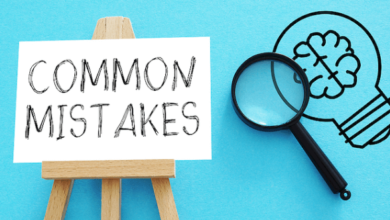How to Handle Unexpected Legal Situations with Confidence

Introduction:
Unexpected legal situations can arise at any time, leaving individuals feeling uncertain and unprepared. Whether it is an accident, a contract dispute, or an issue requiring immediate legal action, handling such situations with confidence is crucial. Many people panic or make rushed decisions that can lead to negative consequences simply because they do not understand the legal processes involved.
Knowing how to approach a legal matter calmly and logically can make all the difference. Understanding your rights, gathering necessary documentation, seeking professional advice, and knowing when to act can significantly improve the outcome of any legal challenge. This article explores key strategies for managing unexpected legal issues, ensuring that individuals are equipped with the knowledge and confidence to handle them effectively.
Understanding Your Rights and Responsibilities:
One of the biggest mistakes people make in legal situations is not fully understanding their rights and responsibilities. This lack of awareness can lead to making uninformed decisions that could hurt their case or result in unnecessary financial burdens.
It is essential to familiarize yourself with basic legal rights that apply to various situations, such as employment, contracts, property disputes, and personal injury cases. When faced with an unexpected legal issue, take the time to research your rights or consult a legal professional to ensure you are acting within the law.
Key Areas Where Knowing Your Rights is Crucial:
- Employment Law: Understanding wrongful termination, workplace safety, and discrimination rights.
- Consumer Protection: Knowing refund policies, warranties, and contract obligations.
- Criminal Law: Being aware of your rights when dealing with law enforcement.
- Property Law: Understanding lease agreements, eviction rules, and property disputes.
Gathering and Organizing Important Documents:
In any legal situation, having the right documentation can be the difference between a favorable and unfavorable outcome. Legal cases often rely on clear evidence, including contracts, medical records, receipts, or written agreements. Without proper documentation, proving your case becomes significantly harder.
Organizing important documents before a legal issue arises is a smart strategy. If you suddenly find yourself in a legal dispute, gather all relevant paperwork as soon as possible. This includes any correspondence, receipts, photographs, and witness statements that can support your position.
Essential Documents to Keep for Legal Situations:
- Identification Documents: Passports, driver’s licenses, and social security information.
- Financial Records: Bank statements, tax documents, and purchase receipts.
- Employment Agreements: Contracts, pay stubs, and workplace policies.
- Medical Records: Reports and bills, especially for injury-related claims.
Seeking Professional Legal Advice at the Right Time:
Many people try to handle legal matters on their own, thinking they can resolve them without professional help. However, seeking legal advice early can prevent costly mistakes and ensure you are making informed decisions. A lawyer can provide clarity on complex legal issues and guide you through the correct steps to take.
Legal professionals specialize in different areas, so it is important to consult an expert who has experience in the specific issue you are facing. Whether it is an employment dispute, personal injury case, or contract disagreement, having a knowledgeable attorney by your side increases your chances of a successful resolution.
When to Seek Legal Advice Immediately:
- If you are being sued or facing criminal charges.
- If you have suffered an injury due to someone else’s negligence.
- If you are signing a legally binding contract with financial implications.
- If you receive a legal notice or court summons.
Staying Calm and Taking Strategic Action:
In stressful legal situations, emotions can take over, leading to rash decisions that may not be in your best interest. Panic and frustration can cloud judgment, making it difficult to think clearly and assess the best course of action.
Instead of reacting impulsively, take a step back and analyze the situation rationally. Gather all necessary information, consult relevant experts, and develop a strategic plan before making any decisions. Having a methodical approach ensures that you do not make avoidable mistakes that could impact your case.
Steps to Maintain Control in a Legal Crisis:
- Take a deep breath and assess the situation logically.
- Avoid discussing legal matters with uninvolved parties.
- Consult a lawyer before making any statements or decisions.
- Keep detailed records of all interactions related to the case.
Understanding Legal Procedures and Time Limits:
Each legal matter follows a specific process, and missing deadlines can weaken your case. Many legal claims, including personal injury cases, employment disputes, and contract issues, have statutes of limitations that set deadlines for filing claims.
For instance, in personal injury cases, understanding the Personal Injury Claims Process is critical to ensuring the proper steps are followed. This process involves gathering evidence, filing a claim within the legal time frame, negotiating settlements, and, if necessary, going to court. Staying informed about timelines and required legal steps can prevent unnecessary delays or case dismissals.
Common Legal Deadlines to Be Aware Of:
- Personal Injury Claims: Filing deadlines vary based on jurisdiction.
- Employment Disputes: Wrongful termination and discrimination claims have strict timelines.
- Contract Disputes: Breach of contract claims must be filed within a set period.
- Property Disputes: Landlord-tenant issues often have short response windows.
Conclusion:
Handling unexpected legal situations with confidence requires preparation, knowledge, and the right approach. Many legal issues can be overwhelming, but staying informed about your rights, keeping essential documents organized, seeking professional legal advice, and acting strategically can make a significant difference in the outcome.
Legal problems can arise at any time, but with the right mindset and resources, individuals can navigate these challenges effectively. Being proactive and maintaining composure ensures that even in difficult situations, you are prepared to make decisions that protect your rights and interests.




